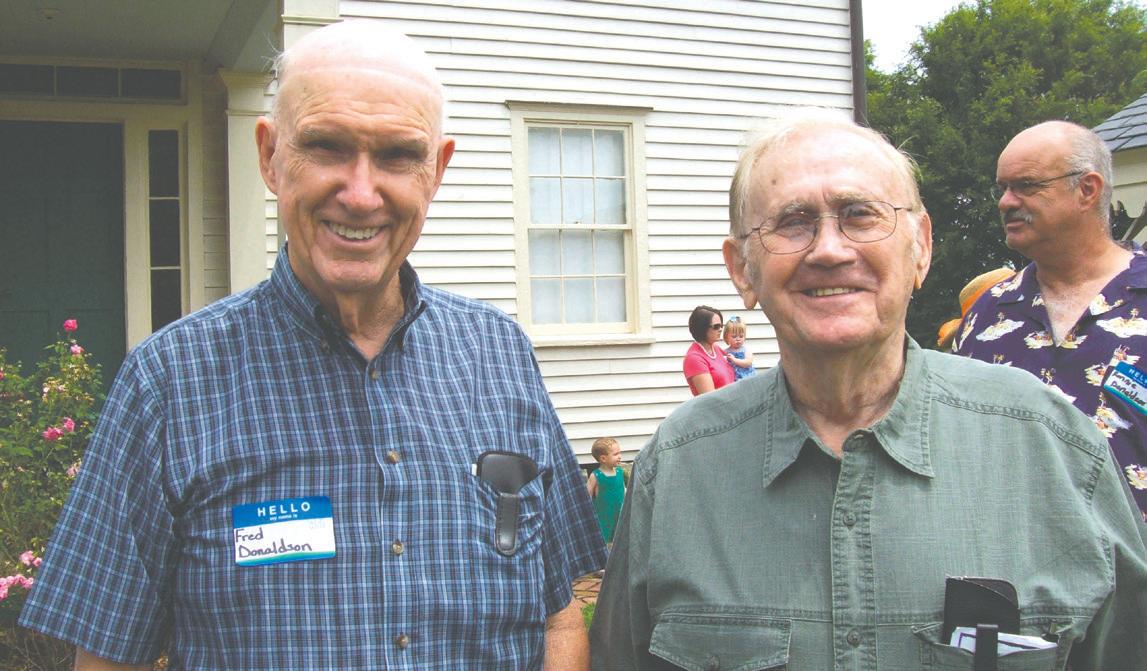
2 minute read
Readers respond to Dunwoody police stings article
By ALEXANDER POPP alex@appenmedia.com
DUNWOODY, Ga. — Reader response was robust after Appen Media broke news last week detailing how the Dunwoody Police Department has obscured arrest locations for prostitution stings over the past 10 years.
The article, “Dunwoody Police Department obscures documents in prostitution arrests” and “Police obscure arrest locations,” drew a cascade of response.
Appen Media reported that for more than a decade, the Dunwoody Police Department has held an informal policy to obscure the location of where undercover sex trafficking operations occur in published public documents, instead using the address of Dunwoody City Hall.
This practice, according to Dunwoody Police Chief Billy Grogan, is meant to preserve his department’s ability to conduct sting operations at local hotels by treating them as confidential informants. Georgia law allows police departments to redact the names of confidential sources from initial incident reports.
Authorities on the First Amendment have decried this “informal policy” as a breach of the public’s trust, but Dunwoody city officials have universally backed the practice as justified by its results.
In letters to Appen Media, readers provided a variety of opinions on the article, some writing they think the department’s practice is correct. Others wrote they believe it is justified only in limited capacities.
“I’m in complete agreement for the police to continue to not expose the hotels,” one reader, who requested to remain anonymous wrote. “Right now, it would only hurt the reputations of the hotels and possibly, they would stop cooperating with the police.”
“I think transparency should ALWAYS be the starting point, unless, as in this case it needs to be limited,” another Dunwoody resident, Michael Pond, said.
“To me, public welfare and safety override any potential concerns about a theoretical right to know in this situation,” Dunwoody resident Rich Lapin said.
However, other readers said they do not agree with the practice and questioned its legality and motivations.
“This is real local reporting, and I applaud Appen Media for it,” a reader who asked to remain anonymous said. “This story presents some thoughtprovoking dilemmas that deserve public discourse.”
Another reader, Bill Berg, commented: “The Attorney General is extremely visible and vocal on trafficking and prostitution issues, and I find it hard to believe he would support the informal policy.”
Readers also submitted a series of questions raised by the article.

They asked whether the Dunwoody City Attorney, municipal court or Georgia Attorney General’s Office had been consulted about the policy, why so many of the cases originating by these investigations are cleared in municipal court, and whether the department would agree to some type of oversight when using the policy.
When posed these questions by email, City of Dunwoody representatives declined to comment but did provide a statement.
“We appreciate your interest in the city’s efforts to proactively fight human trafficking,” Dunwoody Communications Director Jennifer Boettcher said. “The department’s means and methods are legal. If you have further questions, we’d refer you to the Georgia Attorney General’s Office.


Readers also questioned Appen Media’s motives for publishing it’s article.
“If the goal is to let human traffickers flourish in Dunwoody, publish the cooperating hotel locations where stings occur,” a reader who asked to remain anonymous said. “If the goal is to stop the scourge of human trafficking, continue the sensible informal policy of publishing the City Hall address as opposed to the cooperating hotel address.”
Appen Media Publisher Hans Appen responded to the comments, saying the media company is dedicated
What do you think?
to investigating how and why public authorities make decisions, so readers can make informed decisions about their community.
“We report facts and leave it to the readers to make their own judgement on the practice and its implied tradeoffs,” Appen said. “However, they would not have known they were making those tradeoffs without our reporting. So, at the end of the day, if the public decides that it is OK with the risks associated with the practice in exchange for the perceived benefit, I will be glad that we gave them the information they needed to make that informed choice. An engaged and informed public fosters good governance and accountability.”
Continued from Page 1






